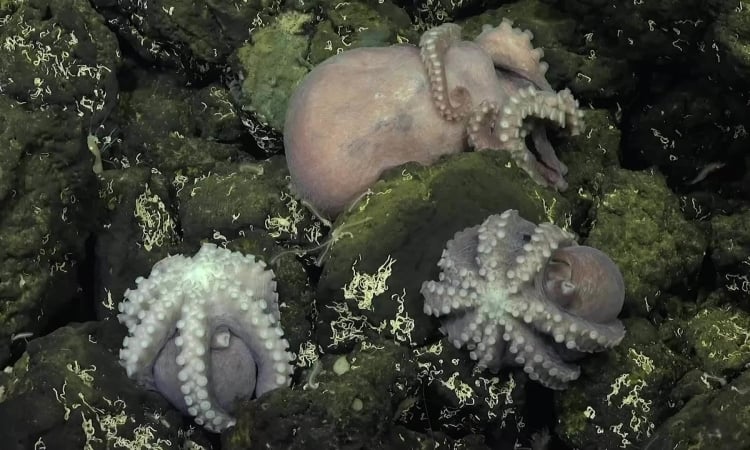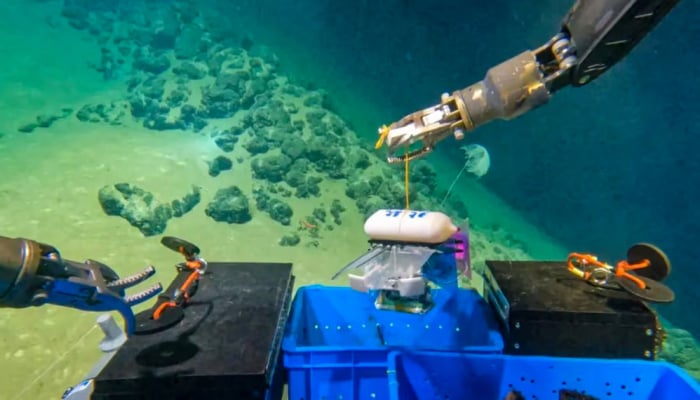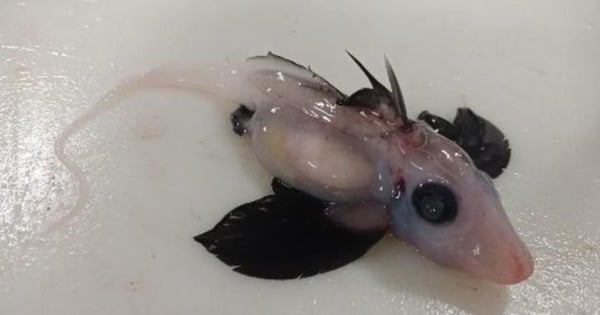Scientists discovered where the octopuses congregate to brood their eggs at a low-temperature hydrothermal vent off the coast of Costa Rica, in the Dorado Rocks.
Octopuses gather in the deep sea off the coast of Costa Rica. Video: CNN
The research team, including experts from the Schmidt Ocean Institute, the University of Costa Rica and the Bigelow Laboratory for Ocean Sciences, found this octopus "nursery" using the remotely operated vehicle ROV SuBastian of the research vessel Falkor (too), IFL Science reported on July 1.
The “nursery” at Dorado Rock was first discovered in 2013, when scientists first observed female octopuses huddled together to incubate their eggs. However, during a three-week expedition in June, they saw eggs hatching there for the first time, suggesting that Dorado may be nurturing its young from birth. It also supports the theory that some deep-sea octopuses head to cool hydrothermal vents to incubate their eggs.
The team determined that the Dorado Rock octopus was likely a new species of the genus Muusoctopus, which includes small to medium-sized octopuses that lack ink sacs. The octopus wasn’t the only creature the team encountered. They also filmed hundreds of other animals, many of which may be entirely new.
"The discovery of an octopus nursery more than 9,000 feet below the surface of Costa Rica proves that there is still much to learn about the ocean. The deep sea off Costa Rica is beyond human imagination, with the spectacular footage collected by ROV SuBastian of three-legged fish, baby octopuses and coral gardens. We look forward to continuing to help the world observe and study the wonders of the ocean," said Dr. Jyotika Virmani, executive director of the Schmidt Ocean Institute.
This is just the beginning of the Schmidt Ocean Institute’s mission to explore the world’s oceans. Starting with a 2023 North Atlantic expedition, they plan to deploy missions to all seven continents over the next decade. They hope to map the seafloor, uncover unprecedented biodiversity, and assess how the oceans are coping with the threat of climate change.
Thu Thao (According to IFL Science )
Source link



![[Photo] Phuc Tho mulberry season – Sweet fruit from green agriculture](https://vstatic.vietnam.vn/vietnam/resource/IMAGE/2025/4/10/1710a51d63c84a5a92de1b9b4caaf3e5)
![[Photo] Prime Minister Pham Minh Chinh chairs meeting to discuss tax solutions for Vietnam's import and export goods](https://vstatic.vietnam.vn/vietnam/resource/IMAGE/2025/4/10/19b9ed81ca2940b79fb8a0b9ccef539a)































![[Photo] Unique folk games at Chuong Village Festival](https://vstatic.vietnam.vn/vietnam/resource/IMAGE/2025/4/10/cff805a06fdd443b9474c017f98075a4)































































Comment (0)